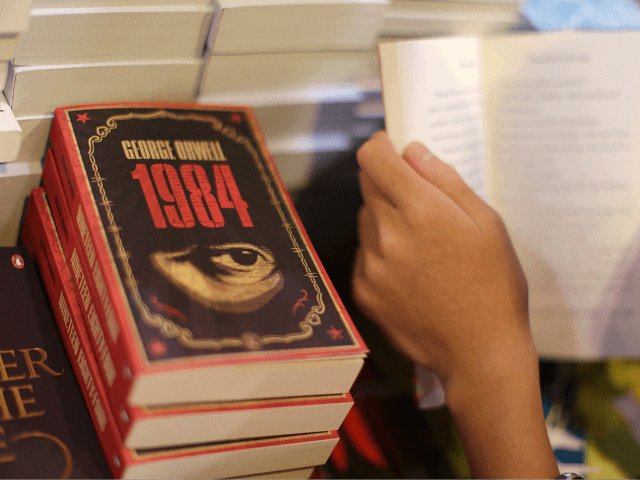The British Library has added George Orwell, Lord Bryon, Ted Hughes, and others to a list of shame for cultural figures with supposed links to slavery.
George Orwell, real name Eric Arthur Blair, is perhaps most famous for his books Animal Farm and Nineteen Eighty-Four, was an anti-imperialist and a socialist — although not one who was afraid to call our the wrongdoings of contemporary communist regimes and their apologists — but the British Library saw fit to add him to its shame list because he had a great-grandfather who owned slaves in the Caribbean.
His fortune was long gone by the time Orwell, the son of a sub-deputy opium agent in British India, was born, however, according to the Telegraph, citing the Orwell Society.
The publicly-funded national library, the largest in the world, explained the list by saying that “Some items now at the British Library, previously owned by particular named figures cited on these pages, are associated with wealth obtained from enslaved people or through colonial violence,” and that “Curators in the Printed Heritage Collections team have undertaken some research to identify these, as part of ongoing work to interpret and document the provenance and history of the printed collections under our care.”
It began the work after settings itself the goal of becoming an “actively anti-racist organisation” in response to ongoing disorder related to the Black Lives Matter movement.
Some of the figures on the same list had links to slavery and imperialism even more dubious than Orwell’s, for example the poet Ted Hughes, born in 1930, who was added because his ancestor Nicholas Ferrar, born in 1592, had been involved in settling the first British colonies in North America hundreds of years before his birth.
“It’s ridiculous to tar Hughes with a slave trade connection. And it’s not a helpful way to think about writers,” commented Sir Jonathan Bate, Hughes’s biographer.
“Why on earth would you judge the quality of an artist’s work on the basis of distant ancestors?” he asked.
Lord Byron, similar to Orwell, was added to the list because of a slave-owning great-grandfather, as well as a slave-owning uncle by marriage.
Oscar Wilde was added because of his uncle’s links to slavery, although the British Library conceded there was no evidence Wilde benefited from any of the wealth this generated in its documents.
The library’s leadership is deeply invested in many aspects of “woke” ideology, having previously urged staff to support the Black Lives Matter movement and controversial Labour politician Diane Abbott, while Chief Librarian Liz Jolly has claimed that “racism is a creation of white people.”
Many of the books available at the British Library documenting the history of slavery and imperialism on the part of non-white polities would suggest this is not a factual statement.

COMMENTS
Please let us know if you're having issues with commenting.